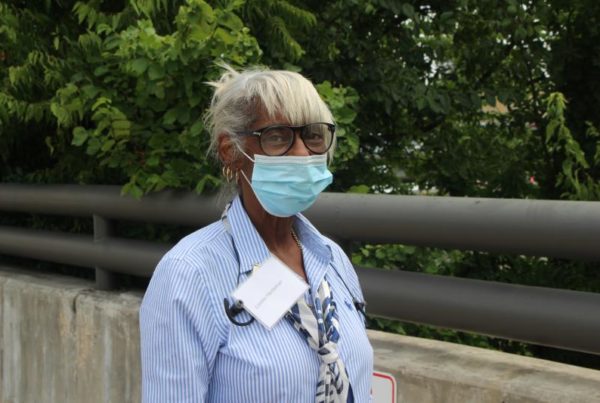When the COVID-19 pandemic began to take hold in Texas, the major metropolitan areas were first to see rapid rises in cases. Rural areas, with lower population densities and less travel, were generally more insulated, at least at first, from the virus’s spread. Or at least that how it seemed.
But those rural parts of Texas haven’t been spared the effects of the pandemic. In Titus County – population 32,000 – the rate of infection has been rising dramatically, exceeding much of the rest of the Lone Star State. Latest figures from the Department of State Health Services put the rate of infection there at 25 cases per 1,000. By comparison, the overall infection rate in the state is about seven per 1,000.
There are several factors influencing this spike, according to Terry Scoggin, CEO of Titus Regional Medical Center in Mount Pleasant. Location, demographics and access to healthcare all contribute to rising infection rates. Plus, many hospitals in the area have folded in the past few years, leaving TRMC to care for more patients. It is the primary hospital for five different counties – about 82,000 people.
“We’ve had (hospital) closures in our area, so we support a wide variety of different counties and demographics,” Scoggins said. “Our county is 42% Hispanic, we are a large rural agricultural industrial [area]. We do have a meat processing plant in town, but right now it’s community spread. I think one of the things that’s driving that now, we have a lack of primary care, we have a lack of resources throughout the community.”
Cases in Titus County have continued to rise over the past two weeks. ICU beds at the hospital are now full, and staff have had to coordinate with hospitals in Texarkana, Longview, Tyler and even Dallas – two hours away – to provide care for the patients who are most sick with the disease. Meanwhile, Scoggin said his team is doing the best they can with the tools they have at hand for now, but that additional tools are needed to tackle the rising caseload.
“From a resource standpoint – it’s testing,” Scoggin said. “If someone says, ‘Terry, I want to be tested,’ we don’t have the resources. We’re testing about 125 a day, but those are for people with symptoms. Our infection rate right now is about 30-32% over last seven days that we test.”
He also said he would like to have more remdesivir – the antiviral drug that has shown some promise in improving outcomes in covid-19 patients.
“We got a shipment of 40 vials a few weeks ago, and it’s saved peoples lives. But right now, we’re down to six vials. Without that, we can’t keep some of those sicker patients, and we have to transfer (them).”
For Scoggin and the staff at Titus Regional, the fight against the pandemic is also personal. They recently lost a team member to the disease, which was hard on the close-knit crew.
“We’re all friends, we know each other, we go to church together. We did have one of our team members pass away from covid. We’ve done a great job of keeping our mortality row, we’ve only had five deaths in our county, but we did lose a team member. That was emotional.”
“It’s real. So anyone who argues with you and tells you people are making up numbers and stuff, I can look them in the eye and say, this is real, and I’ve seen what the impacts of this will do.”















